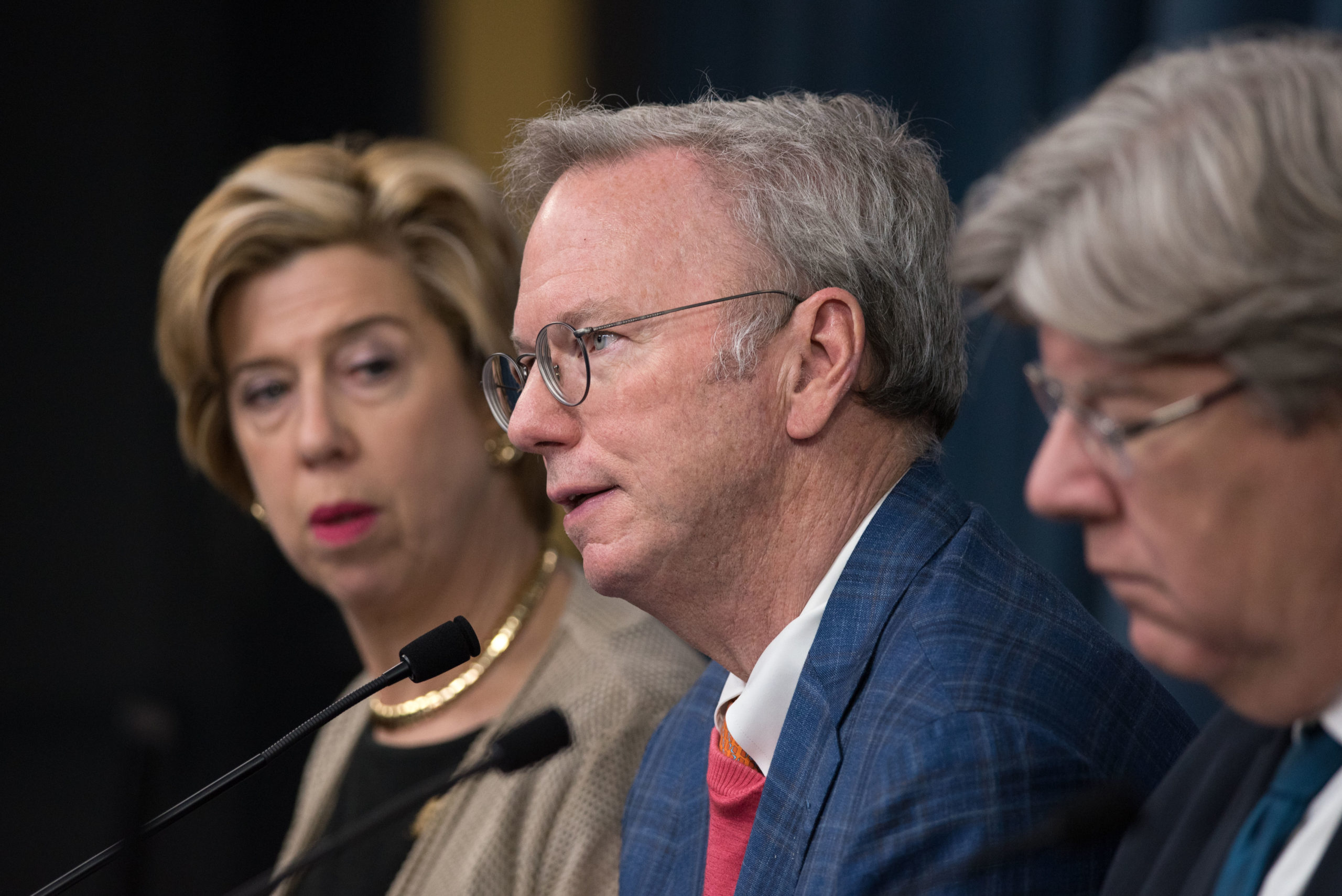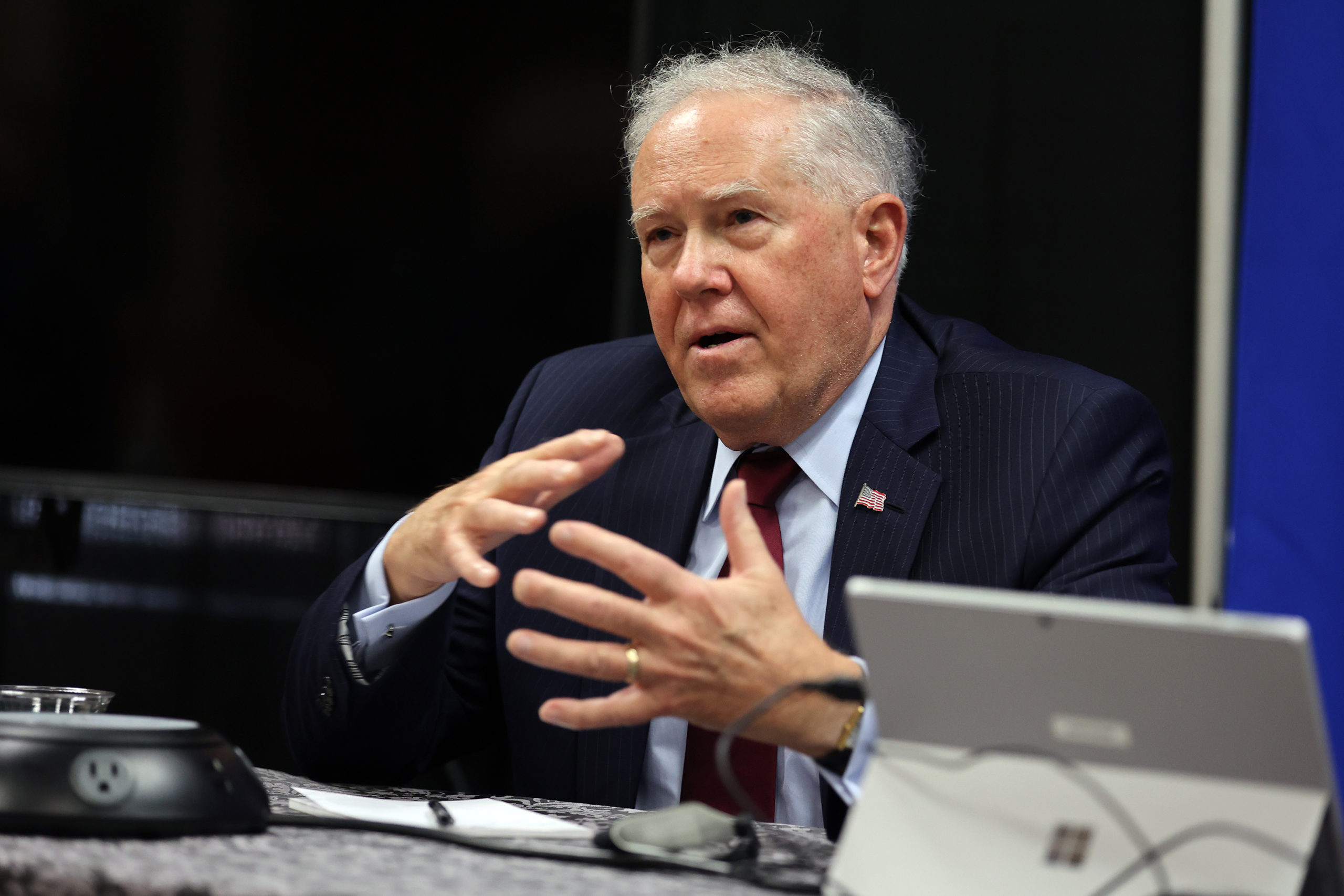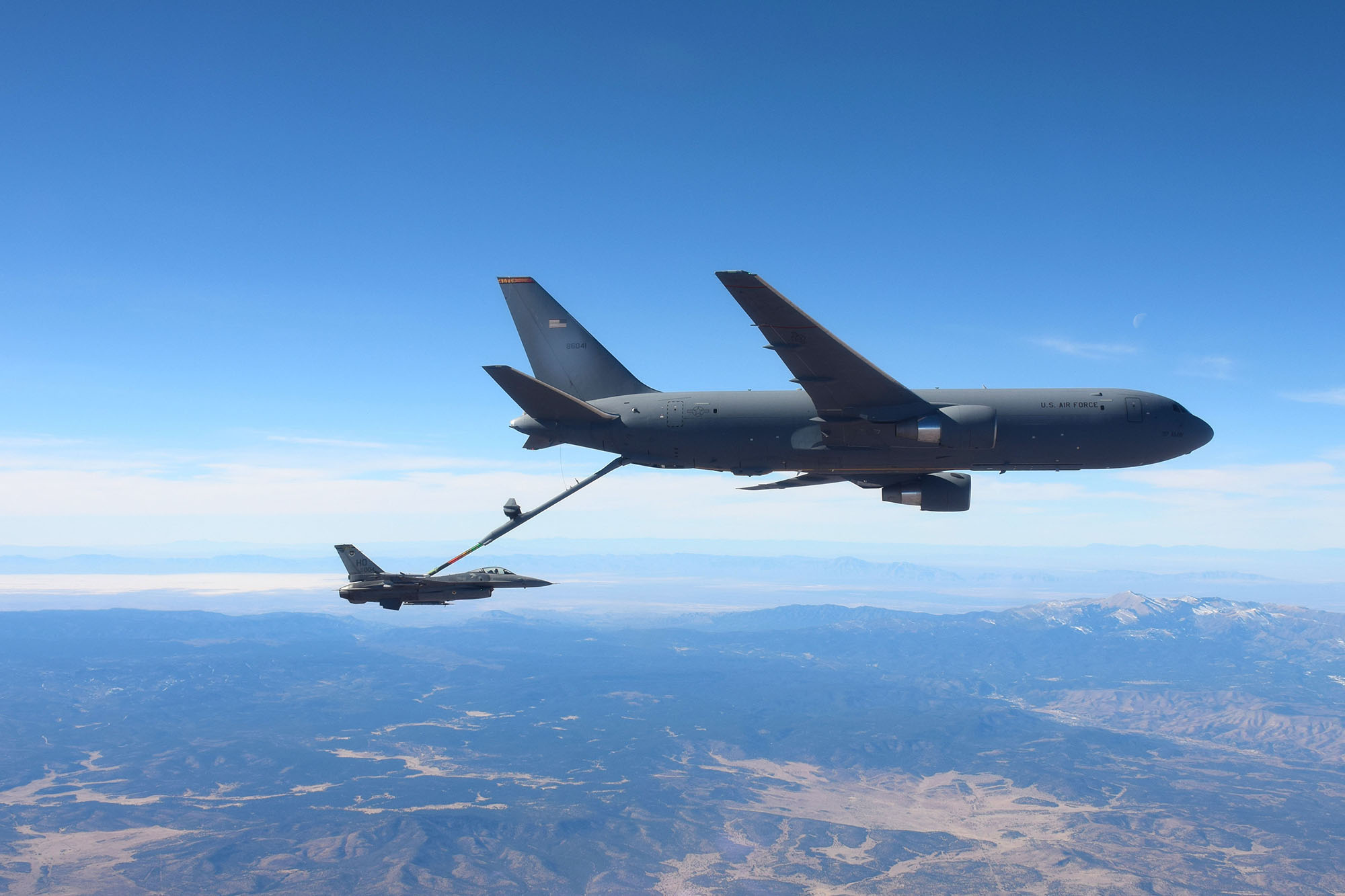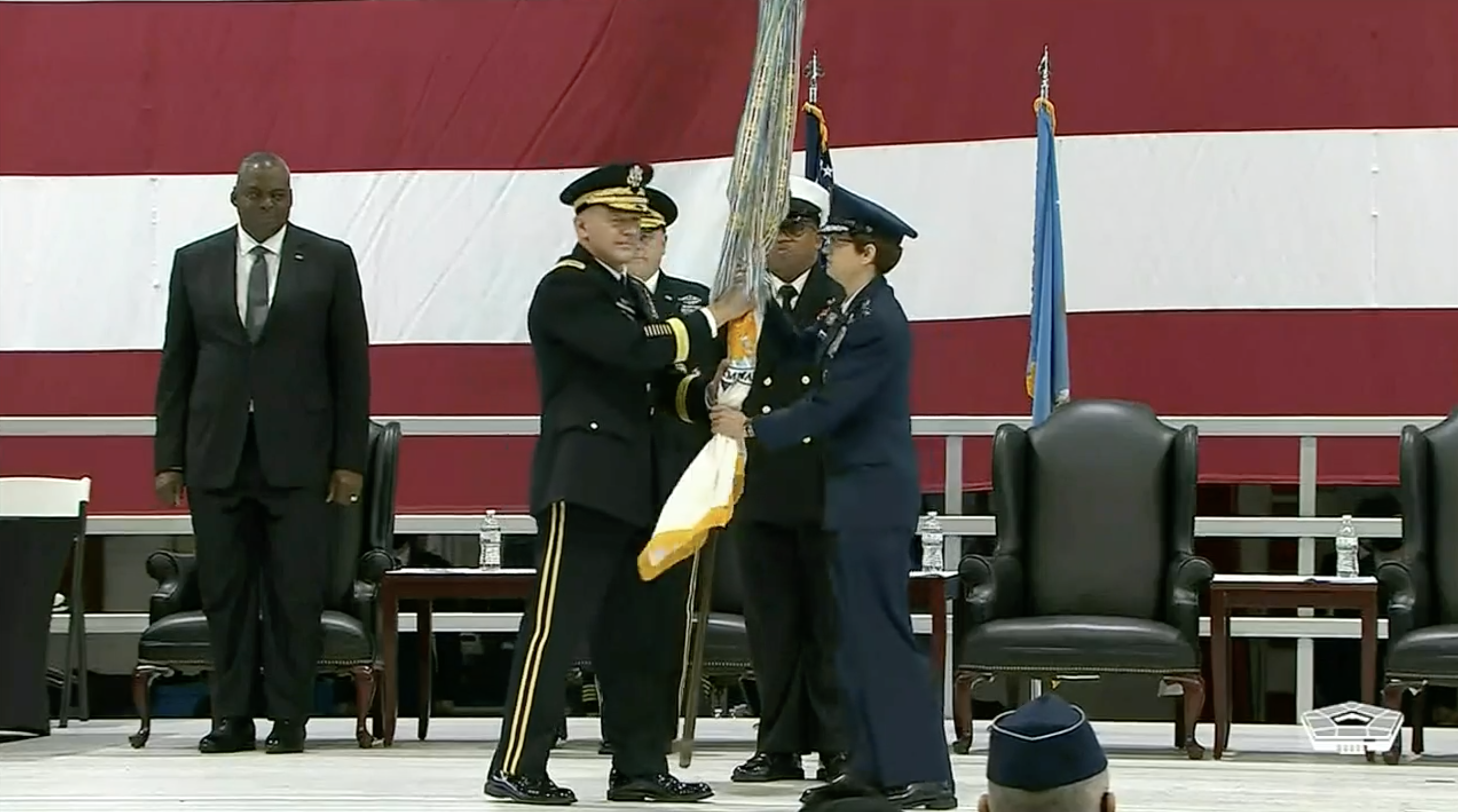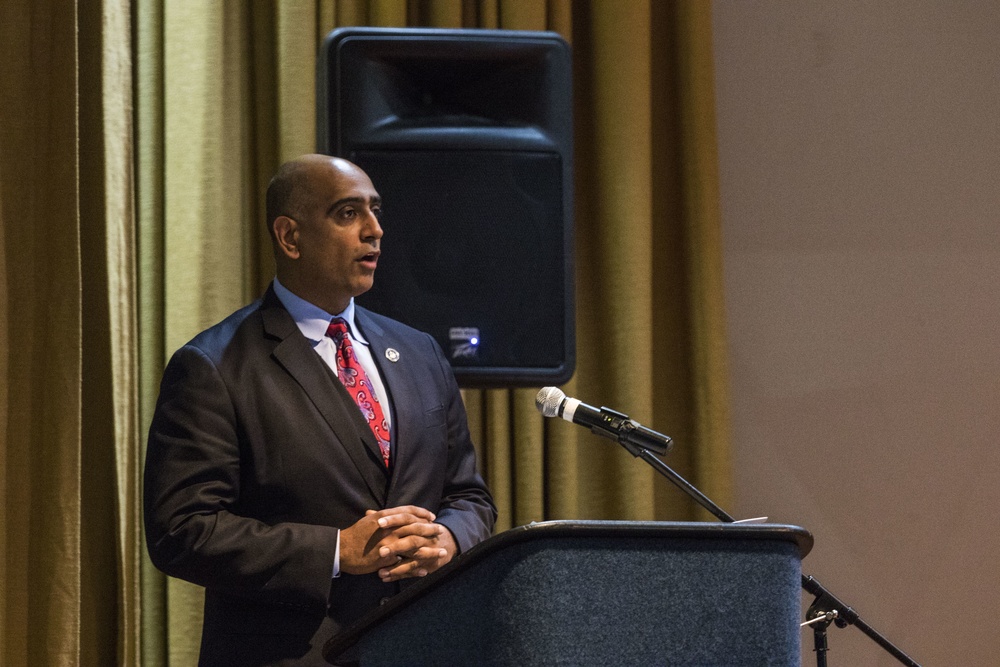The congressionally chartered National Security Commission on Artificial Intelligence has completed its work, but the team that created its 756-page report will continue, backed this time by its former chair, Eric Schmidt, who is committing his own money to the new effort, dubbed the “Special Competitive Studies Project.”
The project is funded by the Eric & Wendy Schmidt Fund for Strategic Innovation, a family-led nonprofit.
Eric Schmidt was chief executive officer, then executive chairman, at Google and its parent company, Alphabet, from 2001 to 2017, then served as a technical adviser to Alphabet until 2020. He ranks 30th on Forbes’ 2021 list of “400 wealthiest Americans” with a fortune worth $23.5 billion. He has become a major influencer in defense technology and innovation over the past several years. He served on the NSCAI from 2018 to 2021 and simultaneously led the Pentagon’s Defense Innovation Board for most of that time, which he chaired from 2016 to 2020 as it drafted DOD’s ethical principals for AI.
Schmidt was technical adviser when Google briefly joined DOD’s Project Maven, which uses machine learning to identify people and objects in intelligence imagery, in 2018. After Google staff objected, however, Google discontinued its ties with the program. Robert Work, who is credited with starting Project Maven as deputy defense secretary in 2018, was Schmidt’s vice chair on the NSCAI and is his co-chair on the new Special Competitive Studies Project, or SCSP.
Schmidt continues to invest in AI technology and heads the list of investors in AI startup Rebellion Defense, founded in 2019 and reportedly valued at $1 billion as of September. Rebellion’s CEO is Chris Lynch, the founding director of the Defense Digital Service and the driving force behind the “Hack the Pentagon” bounty hunting program and the Pentagon’s failed Joint Enterprise Defense Infrastructure, or JEDI, cloud computing program.
The new SCSP, an LLC within the family nonprofit, aims to make recommendations to the government not only on AI but also on other “emerging technologies” that will “reshape our national security, economy, and society,” according to spokesperson Tara Rigler, who held the same role with the national AI commission.
Joining Schmidt on the SCSP board of advisors are Work, the former deputy secretary of defense who is a consultant and senior fellow at the Center for a New American Security, or CNAS; Michele Flournoy, a CNAS co-founder and its current board chair, and former undersecretary of defense for policy in the Obama administration—Flournoy and Work serve together advising AI contractor SparkCognition Government Services; Nadia Schadlow, former deputy national security adviser for strategy in the Trump administration; and former U.S. representative and chair of the House Armed Services Committee William M. “Mac” Thornberry (R-Texas).
“All potential conflicts of interest will be closely monitored by legal counsel,” Rigler said.
SCSP draws its historical inspiration from the Cold War-era’s Rockefeller Special Studies Project, or SSP, launched in 1956 by Nelson A. Rockefeller, the grandson of John D. Rockefeller Sr., co-founder of Standard Oil. Nelson A. Rockefeller would later become governor of New York then Vice President during Gerald Ford’s presidency. Rockefeller’s project was led by Henry Kissinger, who became national security adviser and Secretary of State under Richard Nixon and Ford.
“In the midst of the Cold War, as the U.S. was facing roiling domestic and international conditions, Rockefeller and Kissinger brought together some of the nation’s leading thinkers to study the major problems and opportunities confronting the country, to chart a path to revitalize American society, restore a strong bipartisan national security strategy, and renew American leadership,” explains the Oct. 5 news release announcing SCSP’s launch.
Yll Bajraktari, who was the NSCAI’s executive director, will serve as the chief executive officer at SCSP. He was chief of staff to retired Army Lt. Gen. H.R. McMaster during McMaster’s tenure as national security adviser to Donald Trump.
Rigler confirmed that more members of the NSCAI staff are moving over and that SCSP “is still recruiting and hiring additional members, including experts on areas that SCSP will look into.” She said Bajraktari will “build a team of technologists, national security professionals, and subject-matter experts to study and recommend methods to strengthen America’s long-term competitiveness.”
Rigler said SCSP is “building its research plan around the areas that we believe national leaders need to focus on, specifically topic areas essential to ensuring our national competitiveness.”
Editor’s Note: This story was updated at 11:25 a.m. on Oct. 19 to note that the Special Competitive Studies Project has a board of advisors and Yll Bajraktari will serve as SCSP’s chief executive officer.
